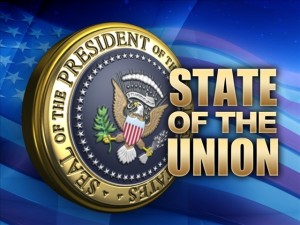 As some of you may know I was recently appointed as a Trustee to the National Small Business Administration. One of the reasons I am thrilled to serve with this group is their stated non-partisan approach to evaluating and influencing policy.
As some of you may know I was recently appointed as a Trustee to the National Small Business Administration. One of the reasons I am thrilled to serve with this group is their stated non-partisan approach to evaluating and influencing policy.
If any of you have suggestions about ways you believe the Federal Government can better serve the needs of your small business please pass them my way. I would love to represent your ideas to the NSBA.
As part of my appointment, I now have the privilege of receiving regular communications helping me and thousands of other small business owners to stay in touch with policies and programs and the impact they have on small businesses. I thought I would share the following article that was published today on the NSBA’s website helping us to understand the implications of the issues discussed during President Obama’s State of the Union Address this week.
If you would like to benefit from the NSBA yourself, here’s the link:
Enjoy the NSBA article in its entirety here……
On Tuesday, Jan. 28, President Barack Obama delivered his State of the Union Address which held good and bad implications for America’s small businesses. NSBA was pleased to hear the president’s support for enhancing exporting opportunities for small firms and sensible immigration reform. However, he missed the mark in calling for economic security through a drastic increase to the minimum wage and failing to offer a serious path forward on the very serious fiscal issues facing the country.
Overall, the address didn’t offer a great deal of substantive policy directives and for those items he did highlight, few specifics were offered. Additionally, small business was a very small component of the speech, garnering just a few mentions with regards to the administration’s loan programs and export promotion efforts. One surprise, given predictions ahead of the speech, was far less emphasis on unilateral actions the President plans to take in the coming year. Responding to the widening gap in Congress, it was anticipated that the President would focus more heavily than he did on his plans to enact Executive Orders to move on certain issues.
One Executive Order he did mention, however, was one to bump federal contractors’ minimum wages up to $10.10. This will likely create a competitive disadvantage for small contracting firms who also operate in the private marketplace. Such a large increase will force increased prices, making them less competitive in the private marketplace where many of their competitors aren’t federal contractors.
On the plus side, the President highlighted small-business loans offered by the U.S. Small Business Administration during his administration and argued that argued that more should be done to foster small exporters. Both federal initiatives serve the small-business community well.
Obama’s call to enact immigration reform ought to be taken seriously by Congress. Most small businesses agree that immigration reform is necessary—the key is a reform that ensures appropriate access to workers of all skill levels without unfair or overly burdensome requirements such as some E-Verify requirements. Small businesses need to focus on creating jobs and economic growth—not policing our nation’s borders.
On a less-positive note, the President largely ignored the deficit and escalating budget problems, including the debt ceiling. This is a huge concern for small business and ought to be garnering more attention.
“Unfortunately, despite a brief mention, the President’s address largely ignored the giant elephant in the room—our looming long-term fiscal crisis,” stated Todd McCracken, NSBA president, and CEO. “This ongoing fiscal avoidance is no way our members would run their business and certainly no way to run our country.”
Obama cited a complex, wasteful tax code that punishes business investment and called for reform to close loopholes and lower corporate tax rates. This acknowledgment is correct and something NSBA agrees with. Unfortunately addressing just corporate tax rates and closing business loopholes will actually result in higher taxes for the majority of small businesses, 83 percent of which pay taxes for their business at the personal income level.
Obama also touched on innovation and needless litigation, and, while NSBA supports reasonable efforts to protect small businesses from unnecessary and unwarranted patent infringement actions, the bill passed by the House, and some of the language moving through the Senate goes far beyond reasonable and will ultimately do more harm to small inventors.
The President briefly mentioned a new concept to help Americans save more for retirement, and urged Congress to create automatic IRAs for all workers via their workplace. NSBA supports making retirement savings easier but warns that automatic IRAs put the administrative and financial onus squarely on small firms.
The President also touched on climate change and called for higher fuel efficiency standards which could result in costly regulatory regimes for smaller firms.
Both the State of the Union and Republican Response struck a tone of cheering for each respective side’s general ideologies and outlined their commitment to work together. However, without specifics and given the midterm elections, the outlook on such compromise and bipartisanship is sketchy.
“Our calls for bipartisan cooperation and compromise are, sadly, becoming as much a broken record as these annual addresses’ rehashing of old political platitudes,” said NSBA Chair Jeff Van Winkle of Clark Hill in Michigan. “The President’s call to ‘make this a year of action’ echoes what small businesses have been demanding for some time.”





Thanks for sharing this article Marilyn. I do not believe that people recognize how much of the real estate industry qualifies as a small business. I believe that your activities with this organization will be great for real estate and small businesses everywhere.
Keep up the great work